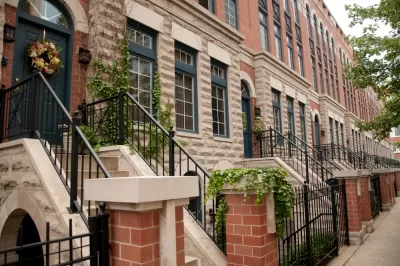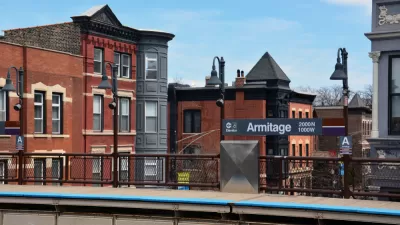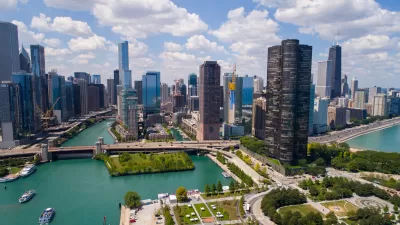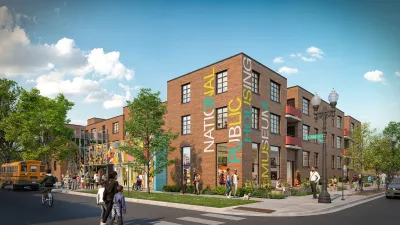A demolition fee designed to preserve affordable housing in older buildings has had some impact on the city’s housing supply.

Writing for Bloomberg CityLab, Mackenzie Hawkins describes an innovative tool wielded by anti-gentrification activists in Chicago’s Logan Square neighborhood: “a pilot ordinance that charges developers a fee of at least $15,000 for tearing down existing buildings.”
The ordinance is part of a larger group of policy recommendations being pushed by community organizers aimed at preserving affordable housing, much of which is found in Chicago’s iconic “two-flat” homes, a classic example of affordable ‘missing middle housing.’ According to Hawkins, “The loss of those units is a key displacement indicator,” making their preservation more urgent.
The demolition fee is now one of two long-term measures enacted by Chicago aldermen to preserve affordable housing. The other is “a permanent anti-deconversion ordinance” that requires developers to maintain density and apply for a permit to build single-family homes on blocks with two-flats.
The policies have yielded some positive results. “In the year after the anti-deconversion ordinance went into effect, followed two months later by the fee, the city found no deconversions in permit applications in the covered areas, compared to a reduced rate in other parts of the city. And there was a substantial drop in residential demolitions: almost 90% in The 606 area, and 40% in Pilsen, slightly outpacing slowdowns in other areas.”
The article outlines other challenges to preserving affordable two-flats, including the high cost of repairs that drive many property owners to sell and developers to demolish old buildings. Meanwhile, city programs to assist with repairs are unable to meet demand. Hawkins notes that the city is also encouraging ADU construction as another avenue to building more housing units, but much of ADU development is concentrated in the city’s wealthier neighborhoods.
FULL STORY: Chicago Taps Brakes on Gentrification With a Tax on Teardowns

Planetizen Federal Action Tracker
A weekly monitor of how Trump’s orders and actions are impacting planners and planning in America.

San Francisco's School District Spent $105M To Build Affordable Housing for Teachers — And That's Just the Beginning
SFUSD joins a growing list of school districts using their land holdings to address housing affordability challenges faced by their own employees.

The Tiny, Adorable $7,000 Car Turning Japan Onto EVs
The single seat Mibot charges from a regular plug as quickly as an iPad, and is about half the price of an average EV.

Seattle's Plan for Adopting Driverless Cars
Equity, safety, accessibility and affordability are front of mind as the city prepares for robotaxis and other autonomous vehicles.

As Trump Phases Out FEMA, Is It Time to Flee the Floodplains?
With less federal funding available for disaster relief efforts, the need to relocate at-risk communities is more urgent than ever.

With Protected Lanes, 460% More People Commute by Bike
For those needing more ammo, more data proving what we already knew is here.
Urban Design for Planners 1: Software Tools
This six-course series explores essential urban design concepts using open source software and equips planners with the tools they need to participate fully in the urban design process.
Planning for Universal Design
Learn the tools for implementing Universal Design in planning regulations.
Smith Gee Studio
City of Charlotte
City of Camden Redevelopment Agency
City of Astoria
Transportation Research & Education Center (TREC) at Portland State University
US High Speed Rail Association
City of Camden Redevelopment Agency
Municipality of Princeton (NJ)





























